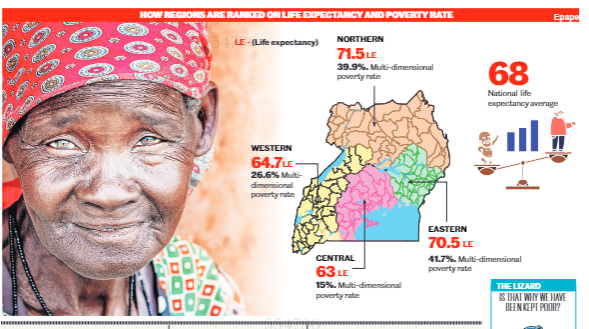Lessons from Ubos census errors

Uganda Bureau of Statistics (Ubos) Executive Director Chris Mukiza (right) and board chairperson Albert Byamugisha (left) interact during the release of 2024 national census results on June 27, 2024. PHOTO/DAVID LUBOWA
What you need to know:
- To all companies that conduct research, seek research services, evaluation firms, donors, government, and all other stakeholders, pick lessons from this.
The Uganda Bureau of Statistics had its recently published 2024 census report questioned over errors in the population figures for four ethnic groups: the Bakiga, the Bagisu, the Acholi, and the Langi. The report indicated that the population of Acholi is reducing from 2,131,443miliion to 1,941,913million people, while the Bagisu fallen from 2,390,975 to 2,096,149. According to UBOS, the 2024 figures for the four tribes were mistakenly interchanged, leading to inaccurate representations of population changes.
One can agree with their statement on the misleading figures but the mistakes in the figures of four ethnic groups may not be as much as erroneous as how the whole census process was managed. During the data collection process, enumerators were seen interviewing households hungry, did not administer all questions to nationals’ due poor facilitation.
And by the end of the day you expect reliable data, not really but rather fall a victim of underreporting or over reporting.
Enumerators are key stakeholders in national censuses and their remuneration is crucial if complete, reliable, and valid. Given the circumstances the enumerators went through during the data collection exercise, the errors in data reporting were expected but not to the point of utilisation of the findings.
To all companies that conduct research, seek research services, evaluation firms, donors, government, and all other stakeholders, pick lessons from this. This could be the reason and probably the source of errors.
A large group of people with various interests in data led to the acknowledgement of the errors but for surveys with limited number of people with interest pass with mistakes unnoticed and wrong data is used affecting service delivery decisions.
Robert Mugabe, Demographer and Development Evaluator [email protected]




